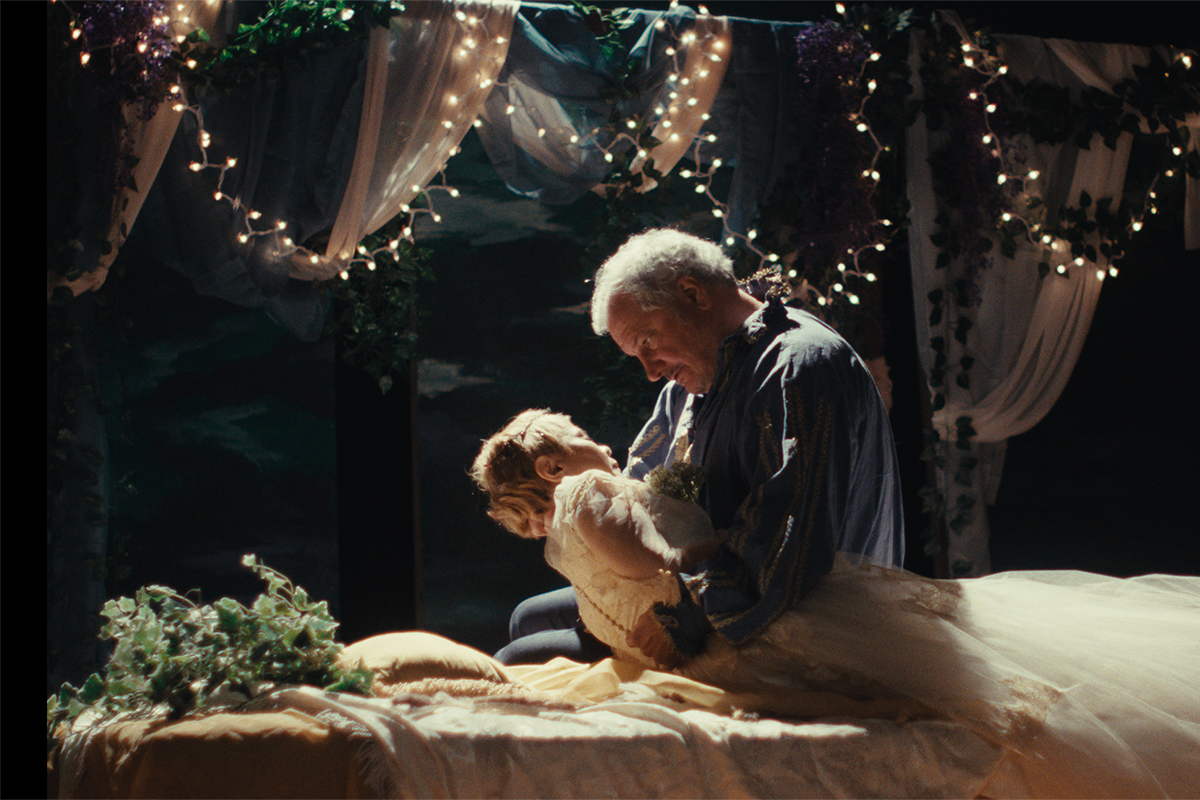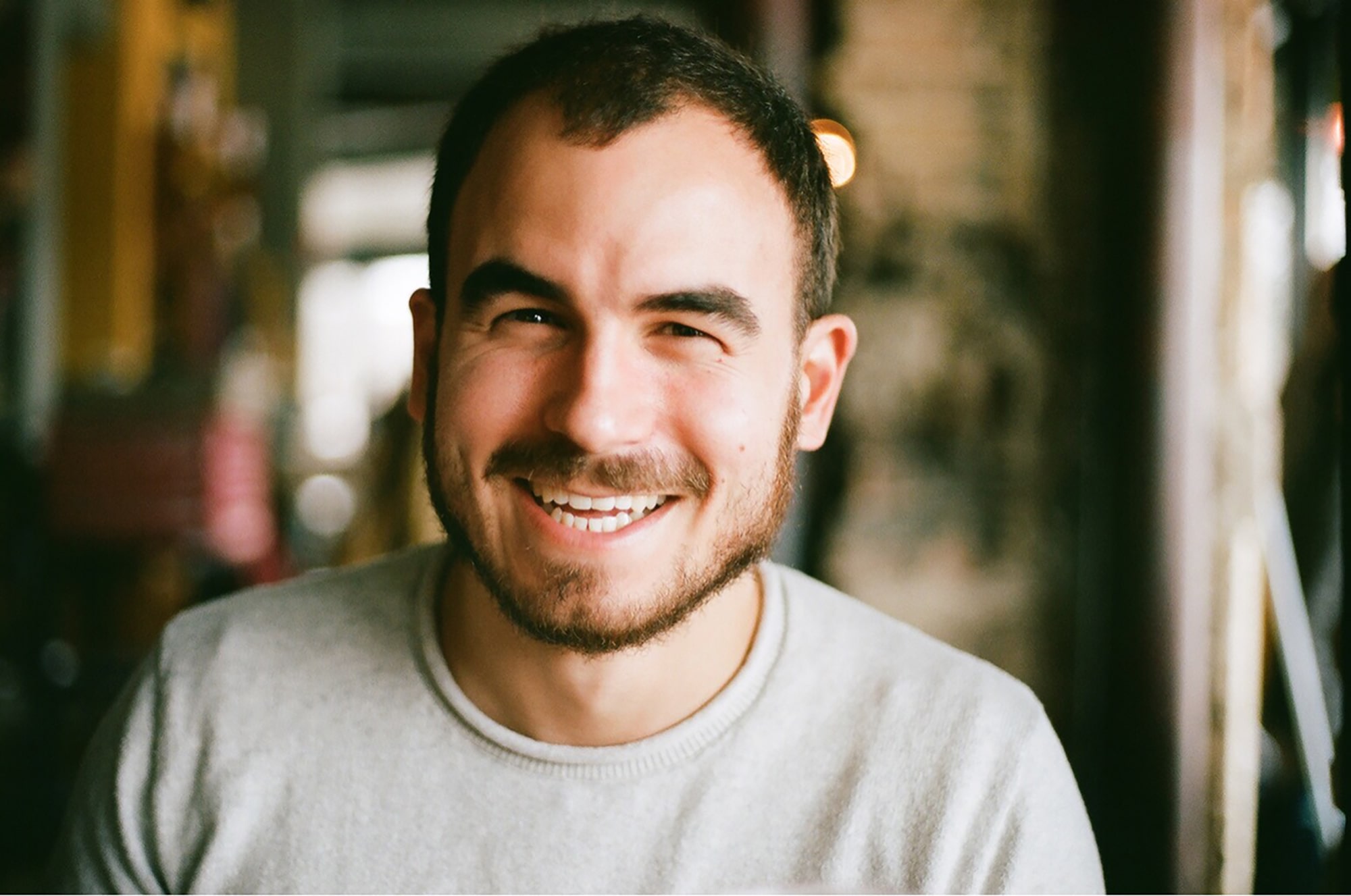
Keith Kupferer in Kelly O’Sullivan and Alex Thompson’s "Ghostlight." (Courtesy of Luke Dyra. An IFC Films release.)
The filmmaking pair are now back with their newest feature, "Ghostlight," which recently premiered at the famed Sundance Film Festival. In this Q&A, Thompson talks about his experience at Sundance, what he learned about directing at DePaul and the making of "Ghostlight."
You got your MFA from DePaul in 2017. What did you learn during your MFA that has helped you in your career as a director?
At DePaul I met a great deal of professional filmmakers who I admire and still keep up with to this day. School of Cinematic Arts faculty James Choi, Raphael Nash and Steve Jones are good friends. They’re resources and often producers on the films I make, but they’re also friends I can speak to openly, gossip and gripe to. I don’t know that it has anything to do with what industry they’re in either - they’re just wonderful people who happen to be extremely talented in a field I love.
I definitely squeezed in everything I could out of the experience. My thesis was a feature, and I needed a lot of support to get done. I had taken a class with Ron Eltanal that I loved where we made a film every week; it was so run-and-gun, and every time we screened I felt pride at some small choice that my group had made. It was instructive for the feature, which was shot in six days and had to be quick but was also meant to be a thesis statement for the kind of intentional filmmaking I wanted to be doing. Without that mix of rigor and joy and self-motivation I could never have finished that project.
Your recent film "Ghostlight" (co-directed with Kelly O'Sullivan) premiered at Sundance to rave reviews. What was your favorite part of Sundance? What is it like to reach this point in your career?
My favorite part of Sundance was getting to engage with the other filmmakers. I loved feeling like we had reached a new level of engagement with the press and audiences (all of whom were great), but bumping into and chatting with other directors, writers, actors and producers from near and far felt like the first day at Hogwarts.
I can’t thank the programmers enough for letting us in, by the skin of our teeth. At the same time, now that name—Sundance—will always be associated with "Ghostlight," and with all of us, in our bios and introductions. That’s a wonderful gift for a group of collaborators who made something so humbly and with such pleasure and speed. So it feels like the most insecure part of me can finally admit that we earned it, too.
 DePaul School of Cinematic Arts alum Alex Thompson (MFA '17)
DePaul School of Cinematic Arts alum Alex Thompson (MFA '17)
I recently watched "Saint Frances" for a class—your films have this kind and simple yet also dark and hilarious sensibility. What are your influences as a director?
I try to always come at stories from a place of empathy, or at the very least a lack of judgment. So there’s a plainspokenness to that intention that probably needs to be as simple as possible.
The filmmakers who drew me to directing all have extremely close relationships to picture and a loose hand with performance. Raoul Walsh is a recent obsession; I find his attention to film language and performance feels extremely contemporary.
You and O'Sullivan have collaborated on both of your recent feature films. How does your collaborative process work?
Kelly wrote both scripts, and I was an early reader on both scripts. On "Ghostlight," I was thinking more like a director, and it helped that Kelly was too. On "Saint Frances," I was most concerned with getting out of the way of whatever alchemy was present on the page, which was cumulative rather than structurally impactful. On both projects I would express pretty intense opinions line-by-line, scene-by-scene, and everything would be put under the microscope, together.
I learned there’s a misunderstanding when it comes to co-directors: you’re not actually splitting things up. You’re sharing 100% of 100%. We made a soft rule early on that the worst thing we could do was compromise—we’d end up with a movie that inevitably lacked teeth and intention. The way I work isn’t like moving toward a predetermined end anyway. It’s all about exploration and curiosity, so I’m not concerned with two directors so much as I’m responding to what’s on the monitor.
What are you working on next?
I’m working on another feature that will hopefully shoot late this summer or early fall. It’s another collaboration with Kelly.
Greer DuBois is a social media assistant for the School of Cinematic Arts and a first-year screenwriting student.